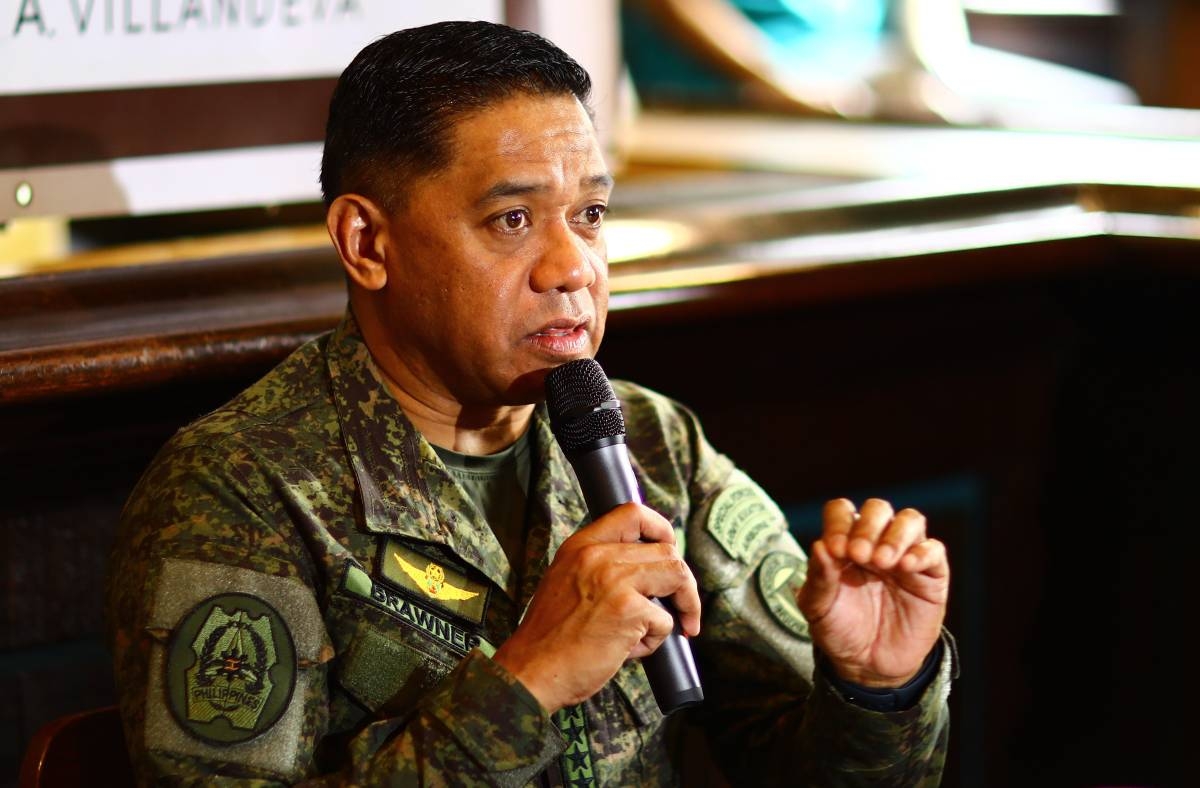MANILA, Philippines: The recent collision near Ayungin Shoal has sparked a war of words between the Armed Forces Chief Romeo Brawner Jr. and the China Coast Guard. Brawner has labeled the China Coast Guard as “liars” for blaming the Philippine vessels involved in the incident.
Expressing his disbelief, Brawner stated, “They’re really a liar, they are inverting the situation. Imagine, in fact they said we’re the ones who collided with them which is really impossible because our ship is just too small compared to their larger ships, so what they are saying is not true.”
Brawner, who was personally present on board the civilian boat Unaizah Mae 1 during the incident, witnessed the Chinese vessels harassing their boat. These actions included dangerous maneuvers and an attempt to bump them from behind, making the Chinese version of events appear “absurd.”
During an interview, Brawner revealed that one of the wooden posts of the Unaizah Mae 1 boat was damaged due to the intense firing of water cannons by the Chinese vessels. This aggressive behavior further solidified Brawner’s stance against the false accusations made by the China Coast Guard.
Accompanied by Vice Admiral Alberto Carlos, the Western Command chief, and escorted by M/L Kalayaan, Brawner’s party was en route to the grounded BRP Sierra Madre. Their mission was to provide much-needed provisions and Christmas gifts to troops stationed there, as well as to deliver a message from President Ferdinand Marcos Jr.
Brawner emphasized that the Philippines will continue to assert its sovereign rights and support the fishermen operating in its Exclusive Economic Zone (EEZ). Specifically, they will focus on assisting fishermen in the Scarborough Shoal or Bajo de Masinloc.
The collision near Ayungin Shoal serves as a reminder of the ongoing territorial disputes in the South China Sea. The Philippines, along with other countries in the region, has been engaged in a long-standing battle to protect its sovereign rights and maintain peace and stability in these waters.
International maritime laws and agreements, such as the United Nations Convention on the Law of the Sea (UNCLOS), provide a framework for resolving such disputes. However, tensions continue to rise as countries assert their claims and engage in aggressive actions.
The Philippines, as a signatory to UNCLOS, has consistently advocated for the peaceful resolution of conflicts and the adherence to international law. The actions of the China Coast Guard in this incident, as described by Brawner, highlight the challenges faced by the Philippines in upholding its rights and protecting its fishermen.
It is crucial for the international community to closely monitor these developments and encourage diplomatic efforts to de-escalate tensions in the South China Sea. The freedom of navigation and the rights of coastal states must be respected to ensure stability and cooperation in the region.
As the Philippines continues to assert its sovereignty and protect its interests, it is essential for all parties involved to engage in open dialogue and adhere to international norms. Only through peaceful negotiations can a lasting resolution be reached, allowing for the peaceful coexistence of nations in the South China Sea.
The incident near Ayungin Shoal serves as a reminder of the importance of maintaining open lines of communication and fostering mutual understanding between countries. By working together, nations can navigate the complex challenges of the South China Sea and ensure a peaceful and prosperous future for all.







